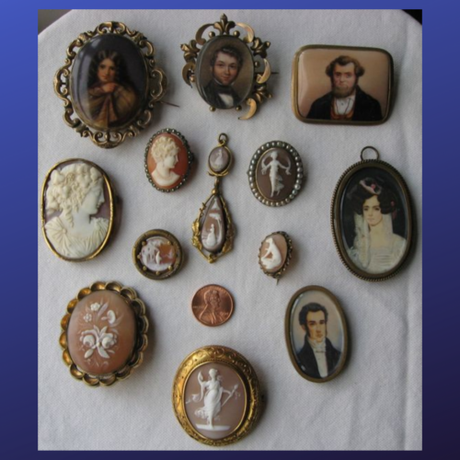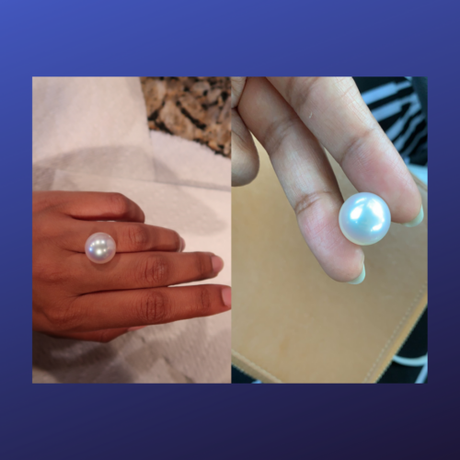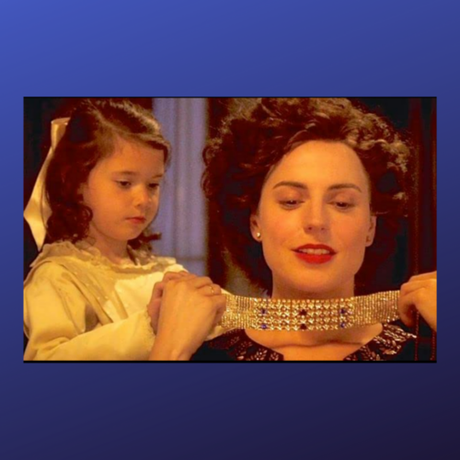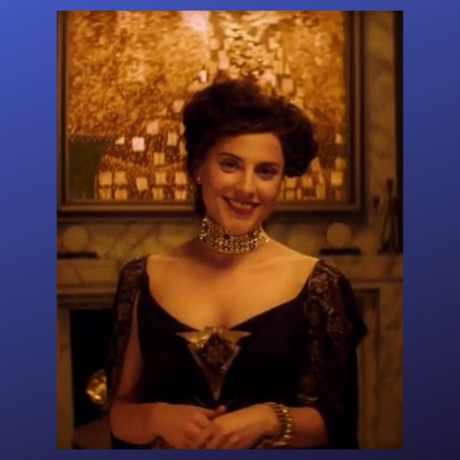So many pieces of art throughout history display jewelry in one way or another. Of course, jewelry itself is an art and is created by master craftsmen! We are looking today at a few of the most famous pieces of art featuring jewelry!
In several parts of the U.S., including where I live, the snow is piling higher and higher. While we are home trying to keep warm, I've been taking my daughter on virtual tours of museums and discovering different styles of art. The popular jewelry styles of the time are often reflected in portraiture and other pieces of art. Today's imagery is no different, can you imagine a picture of a red carpet event sans adornment?
The Art
Painting - Portrait of Elizabeth I of England, the Armada Portrait (c.1588) by George Gower
Jewelry sent a message, adding decadent jewelry in a painting that told the viewer that the subject was of standing. When Queen Elizabeth I's gown was covered in pearls, every pearl had to be painstakingly obtained and fashioned to her dress. Some of these particular pearls were storied in their own right, such as pearls that Catherine de Medici gifted to Mary, Queen of Scots at her wedding.
From Artsy:
"With her gallons of pearls, Elizabeth evinces not only a staggering display of wealth but also her global dominance and autonomy. In the painting, she is shown literally standing on the world, a gesture that restates the strong reach of her empire, which can supply her with any jewel she could ever desire. Yet, O'Reilly noted, often, these sitters wore an excess of jewels that we know they didn't really have from the household inventories left behind. Either they mixed in fakes, borrowed stones, or had the artist imagine them."
Painting - A Christmas Carol (c. 1867) by Dante Gabriel Rossetti
These incredible emeralds look like they would be smashing with that necklace. Some looks are just timeless. Can you imagine wearing these for a sitting with a painter? What would you wear with it? We'd love to hear in the comments below.
Painting - Idealized Portrait of a Lady (Portrait of Simonetta Vespucci as Nymph) (c. 1475) by Sandro Botticelli
Cameos and portrait jewelry were incredibly popular.

What is a Cameo?
This is what My Modern Met has to say:
"A cameo is a form of glyptography, or bas-relief, carving, which historically features landscapes, portraits, and mythological figures cut into a variety of materials, but most often into glass, hardstones, and shells. Cameo artworks were crafted to create two layers on one piece of material, the top of which protruded from its background, creating a multi-dimensional artwork. These detailed reliefs were often used to adorn pieces of jewelry, such as brooches, necklaces, bracelets, and rings. The earliest cameos took inspiration from prehistoric petroglyphs, which documented important religious and symbolic iconography onto rock faces."
Painting - Girl With A Pearl Earring (c. 1665) by Johannes Vermeer
From Wikipedia:
"The painting is a tronie, the Dutch 17th-century description of a 'head' that was not meant to be a portrait. It depicts a European girl wearing an exotic dress, an oriental turban, and what was thought to be a very large pearl as an earring.[1] In 2014, Dutch astrophysicist Vincent Icke [nl] raised doubts about the material of the earring and argued that it looks more like polished tin than pearl on the grounds of the specular reflection, the pear shape, and the large size of the earring."
As we may never definitively know what the earring is made of, and I am a pearl lover, I am prone to stick to that thought. What do you think? Weigh-in, in the comments below!
PriceScope member, Yssie posted my pearl #goals and this sized pearl would look amazing in a tronie or portrait.

Painting - Portrait of Adele Bloch-Bauer I (c. 1907) by Gustav Klimt
From Ivy Panda:
"Her wealth and power are emphasized by precious metals and artifacts she is wearing; moreover, excessive use of gold suggests the woman's detachment from the earthly plane making her aloof and superior at the same time. However, the woman does not seem arrogant or conceited - on the contrary, her fragile grasping hands, her melancholic eyes, and sensuality suggest that she is tender and vulnerable."
Often referred to as The Lady in Gold or The Woman in Gold, this painting has seen some strife. Adele Bloch - Bauer was the only woman that Klimt painted more than once. His use of gold and silver leaf in this painting made it come alive. The choker-style neckpiece that she is wearing is gorgeous, I feel like it could be seen on the red carpet today.


These are stills from the film Woman in Gold which tells the story of Adele Bloch-Bauer's niece reclaiming the painting from the Austrian government after it had been seized by Nazis in World War II and ended up in governmental possession.
This was a great way to spend a snow day and I hope that you enjoyed it too. To discuss more jewelry that would fit into these paintings check out the antique and vintage jewelry forum or more articles, blogs, and posts about antique jewelry on PriceScope.
We would love to see your favorite pieces featured in artwork, share pics with us in the comments!
Written by Kayti Kawachi
